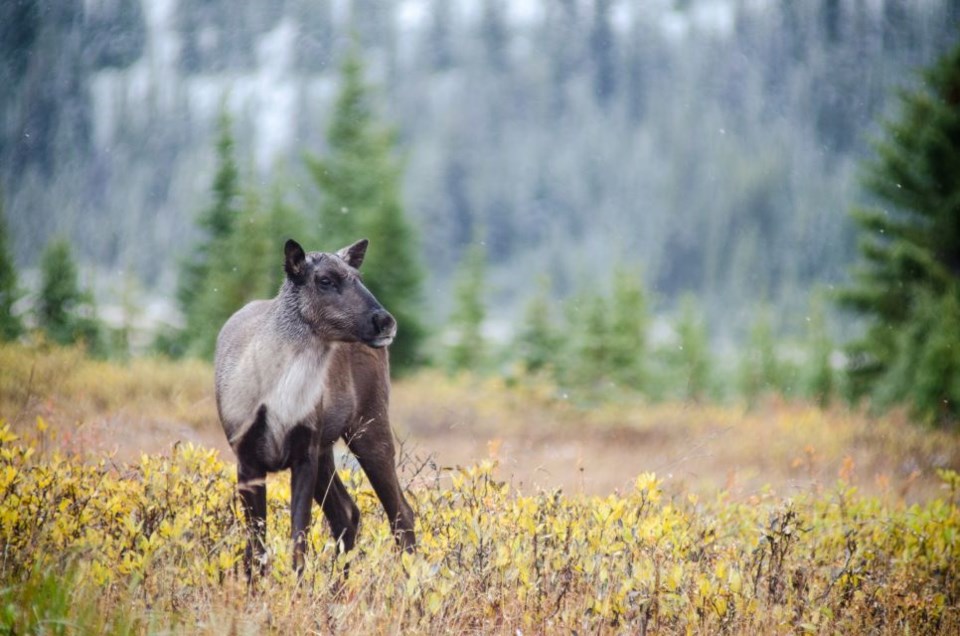The Jasper wildfire did not seriously impact woodland caribou habitat, according to Parks Canada.
Jean-Francois Bisaillon, program manager of the Jasper Caribou Recovery Program for Parks Canada, explained 86 per cent of Jasper National Park was considered critical habitat.
“That’s about 9,600 square kilometres, so that’s a lot, and there’s only about 75 square kilometers of high-elevation critical habitat that has been burned, so [a] very minimal amount of the caribou habitat has been impacted,” he said.
Bisaillon also reported there were no indications that caribou were killed or otherwise directly impacted.
“We do have radio collars on females in the Tonquin Valley, and all information indicates that they just carried on as usual,” he said. “Other herds like the À la Pêche and the Brazeau were far enough from the fire that we have, again, no reason to believe that they were impacted.”
He added the Jasper wildfire will not impact seasonal closures in the Tonquin, Brazeau and À la Pêche caribou ranges. These closures are meant to prevent recreation users from creating trails in the snow that can be used by wolves to more easily prey on caribou.
Jasper National Park’s caribou herds have seen dramatic declines in recent years, with the Maligne herd deemed to be extirpated in 2018.
Due to the small number of breeding females, Parks Canada is planning to rebuild the Tonquin herd, and eventually the Brazeau and Maligne herds, by adding animals to the population through conservation breeding.
Since March 2023, the agency has been building a breeding facility. Bisaillon explained while the wildfire did impact the site, their contractor was able to quickly resume operations following the fire, and they were only a few weeks behind schedule from having to fix the damage.
“We have three buildings there: the administration building, the barn and the storage building, and they were all largely not impacted by the fire, so very minimal damage on that,” he said. “We lost about a quarter of the fence posts, but we're really on track to replace them all, so I think from an infrastructure perspective, we're doing really well at the moment.”
Most of the vegetation within the breeding centre was impacted, with some patches being spared but most of it burned to some degree, from very low severity to high severity.
Parks Canada has since completed a full assessment of the vegetation at this site and is currently working on a restoration plan.
“At the same time, we’re assessing whether, based on the restoration work that we could do this year, we can proceed safely with capturing our first caribou this winter or if we need to delay by a year,” Bisaillon said.
Parks Canada is expected to make a final decision later this year.
The 65-hectare construction site is located off Highway 93A near Athabasca Falls. The area around the future breeding centre will remain closed to the public due to the ongoing construction.




.jpg;w=120;h=80;mode=crop)